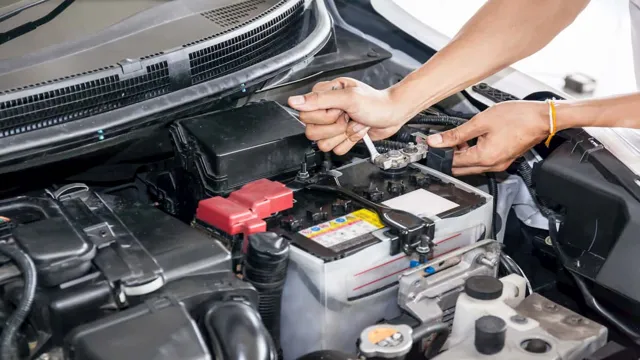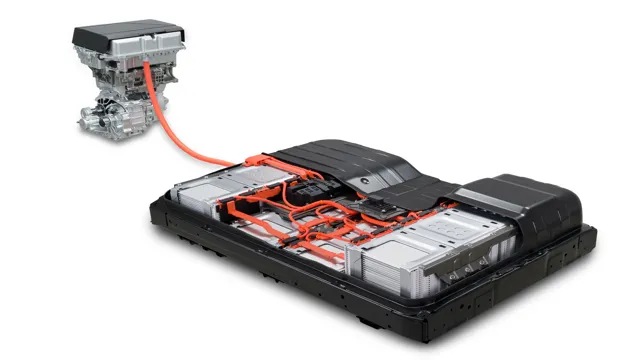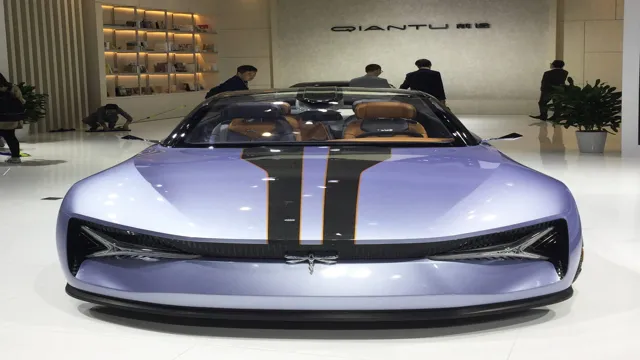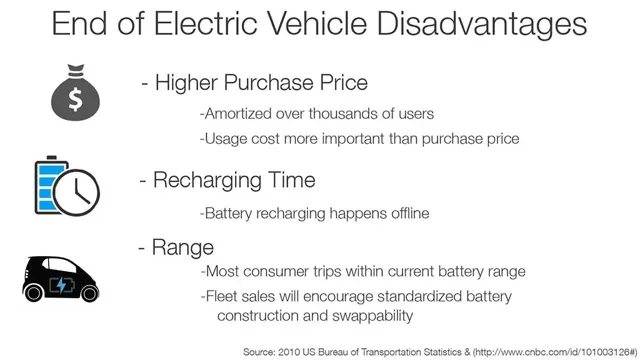How Far Can You Go on a Single Charge? Examining the Average Battery Life of Electric Cars
Electric cars have been gaining popularity in recent years as people look for more sustainable modes of transportation. However, one of the biggest concerns with these vehicles is their battery life. How long will they last? Will they need to be replaced frequently? What is the truth about their lifespan? These are all questions that potential electric car owners may have when considering this type of vehicle.
The truth is that the lifespan of an electric car battery varies depending on several factors, including the make and model of the vehicle, how often it is driven, and how it is charged. While some manufacturers claim that their batteries can last up to 500,000 miles, others may only last 100,000 miles or less. This can make it difficult to accurately predict how long an electric car battery will last.
However, it’s important to note that electric car batteries have been shown to retain their charge capacity for longer than many people think. This means that even when the battery is not brand new, it can still hold a charge for a significant amount of time. Additionally, advancements in battery technology are constantly being made, which could lead to even longer battery life in the future.
Overall, the truth about electric car battery life is that it can vary greatly depending on a number of different factors. However, with proper care and maintenance, the battery in an electric car can last for many years, making it a convenient and eco-friendly option for those looking to ditch their gas-guzzling vehicles.
Examining the Stats
When it comes to electric cars, one of the biggest concerns for potential buyers is the battery life. After all, no one wants to be stranded on the side of the road with a dead battery. So, what’s the average battery life of an electric car? Well, there are a few factors to consider.
Firstly, it depends on the model of the car. Some electric cars have larger batteries than others, which means they’ll generally have a longer range. Additionally, driving habits can also affect the battery life.
Aggressive driving, for example, will drain the battery much quicker than conservative driving. On average, most electric cars will last for around 100-200 miles on a single charge. However, some models, such as the Tesla Model S, can go up to 370 miles on a single charge, while others may only go 80-90 miles.
It’s important to research the specific make and model of the electric car you’re interested in to get a better idea of its battery life.
Industry Averages for Battery Life
When it comes to battery life, there are a lot of factors to consider – device usage, battery capacity, and the age of the battery all play a part. However, there are some industry averages that can give us a general idea of what to expect. For smartphones, the average battery life is around 10-12 hours of use.
Laptops, on the other hand, can vary greatly depending on usage and battery size, but the average is around 4-8 hours. For electric cars, the average battery life is around 8 years or 100,000 miles. It’s worth noting that these are just averages, and your own battery life may vary depending on how you use your device or vehicle.
Additionally, there are many technologies being developed to improve battery life, such as fast charging and longer-lasting battery materials. So, while these averages can be helpful for setting expectations, they should not be taken as the definitive limit for battery life. Rather, they are a starting point for understanding how long your battery might last under ideal conditions, and how you should plan your usage accordingly.
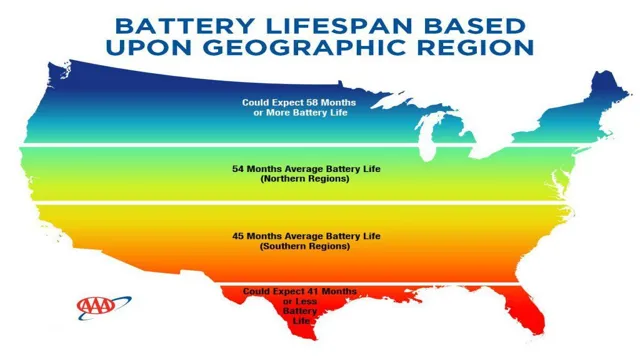
Factors Impacting Battery Life
When it comes to battery life, there are several factors that can impact how long your device can stay charged. These include the age and capacity of the battery, the amount of usage and screen time, and the settings and apps running on the device. For example, if your phone is constantly running high-performance apps or streaming video, it will drain the battery quickly.
Similarly, if you have a lot of notifications and background processes running, they will also use up battery. On the other hand, reducing brightness, turning off unnecessary features, and using battery-saving modes can help extend your battery life. It’s important to pay attention to these factors and adjust your usage accordingly to get the most out of your device.
Real-world Examples
When it comes to the average battery life of electric cars, there are a number of factors that can influence this metric. For example, the size of the battery itself plays a crucial role in determining how long it will last on a single charge. Additionally, the weight of the car can impact its efficiency, with heavier vehicles often requiring more energy to move around.
Other factors such as weather conditions and driving habits can also impact battery life, with extreme temperatures and frequent acceleration and braking being particularly detrimental. Despite these variables, however, many popular electric cars on the market today boast impressive ranges of over 200 miles on a single charge. Manufacturers like Tesla, Chevrolet, and Nissan have made significant strides in improving battery technology over the past decade, and as the market continues to mature, we can expect to see even more impressive ranges in the future.
Performance of Top Electric Car Models
When it comes to electric cars, performance is a key consideration for many car buyers. The great news is that today’s leading electric car models deliver impressive real-world performance. For example, the Tesla Model S Long Range can travel up to 402 miles on a single charge, making it a great option for long-distance driving.
Another popular model, the Nissan Leaf, has a range of up to 150 miles on a single charge, making it a great option for those who don’t need to travel long distances often. The Chevy Bolt, on the other hand, boasts a range of up to 259 miles and can go from 0 to 60 mph in just 5 seconds.
The performance of top electric cars is only getting better, as advancements in technology continue to enhance their range, power and overall driving experience.
Comparing Battery Life to Gas Cars
When comparing battery life to gas cars, it’s important to understand that electric vehicles (EVs) have come a long way in recent years. While older EVs might have struggled with limited range and frequent charging, newer models like the Tesla Model S and Model X can travel over 300 miles on a single charge. To put that in perspective, the average American driver covers about 29 miles per day.
Even if you factor in longer road trips, today’s EVs are more than able to keep up. However, it’s worth noting that extreme temperatures and heavy use of features like air conditioning and heating can affect how far an EV can go on a single charge. That said, for most drivers, range anxiety is no longer a major concern when it comes to electric cars.
Plus, when you consider the fact that electricity costs less than gasoline, you can save a significant amount of money by driving an EV over the course of a year.
Effects of Driving Habits on Battery Life
When it comes to the lifespan of your car’s battery, your driving habits play a crucial role. Short and frequent trips can significantly decrease your battery’s life, as it does not get enough time to recharge itself completely. On the other hand, regularly taking your car for long rides at high speeds can strain the battery, reducing its lifespan.
For instance, if you have a regular commute of just a few miles, then you might need to replace the battery sooner than someone who routinely takes their vehicle on extended trips on the highways. It’s always better to give your battery some time to recuperate and recharge fully, as it helps extend its overall life. Remember, your car’s battery is like a muscle, and exercise trains it to be strong – so make sure to give it the right kind of workout by taking on a long drive every once in a while.
Maximizing Battery Life
If you own an electric car, maximizing average battery life is essential. One of the best ways to do this is by avoiding high-speed driving, which drains the battery quickly. It’s recommended to stay within the posted speed limit to preserve battery life.
Another way is to keep your battery charged between 20-80% instead of fully charging or draining it, which will prolong battery life. Additionally, try to limit using high-energy consuming features, such as air conditioning and seat heaters, and avoid leaving your car in extreme temperatures for extended periods. Taking these steps will help you get the most out of your electric car battery and ensure that your vehicle remains efficient and reliable for years to come.
Best Practices for Battery Maintenance
When it comes to maximizing the life of your batteries, there are a few best practices to keep in mind. First and foremost, it’s important to keep your batteries properly charged and stored. Overcharging or undercharging can both cause damage and reduce the lifespan of your batteries.
It’s also recommended to avoid extreme temperatures, both hot and cold, as this can also have a negative impact on your batteries. Additionally, using the correct charger for your specific battery type and following the manufacturer’s recommended charging times can help prolong the life of your batteries. Finally, it’s important to regularly inspect your batteries for any signs of damage or wear and replace them as needed to avoid any potential safety hazards.
By following these simple tips, you can help ensure that your batteries last as long as possible and continue to perform at their best.
Optimizing Charging Habits
Optimizing Charging Habits to Maximize Battery Life We all know how frustrating it can be to have a dead battery on our devices, especially when we need them the most. However, did you know that your charging habits could be affecting the lifespan of your battery? By optimizing your charging habits, you can significantly maximize your battery life. Firstly, avoid charging your device overnight.
It’s a common habit that most people have, but it can harm the battery in the long run. Instead, charge your device in short bursts, preferably from 20% to 80%. This not only keeps your battery healthy but also ensures that you can use it for an extended period.
Additionally, avoid charging your device to 100% as it can increase the heat and cause damage to your battery in the long run. Moreover, unplugging your device when it’s charged can help maintain the health of your battery. Remember, your battery’s lifespan depends on how well you take care of it.
The Future of Electric Car Battery Life
Electric cars are becoming increasingly popular as people are becoming more environmentally conscious and looking for ways to reduce their carbon footprint. Average battery life electric car is a hotly debated topic in the industry with many consumers wondering how long the battery will last and how much it will cost to replace. Currently, the average lifespan of an electric car battery is around 100,000 miles or around 8-10 years.
However, this is expected to improve in the coming years as technology continues to advance and new materials are used in the manufacturing process. Some industry experts predict that electric car batteries could reach 1 million miles in the future, potentially making them more reliable and cost-effective over the long run. While the initial investment in an electric car may be higher than a traditional gas-powered vehicle, the potential for longer battery life makes it a worthwhile investment for those looking to reduce their carbon emissions and save money on fuel costs.
Conclusion
In conclusion, the average battery life of an electric car is a complex and ever-changing topic. It’s like trying to predict the lifespan of a plant – it depends on a multitude of factors like how much it’s used, how often it’s charged, and how well it’s maintained. But one thing is for sure – as technology continues to evolve, we can expect the average battery life of electric cars to improve and make our driving experiences even more sustainable and enjoyable.
“
FAQs
What is the average battery life of an electric car?
The average battery life of an electric car is about 8-10 years or 100,000 miles.
Can the battery life of an electric car be extended?
Yes, the battery life of an electric car can be extended by following proper charging and maintenance practices.
How can I maximize the battery life of my electric car?
To maximize the battery life of your electric car, it is recommended to avoid frequent fast charging, keep the battery between 20-80% charge, and avoid extreme temperatures.
How does the battery life of an electric car compare to a traditional gasoline car?
The battery life of an electric car generally lasts longer than a traditional gasoline car. However, the cost of replacing the battery can be higher.

